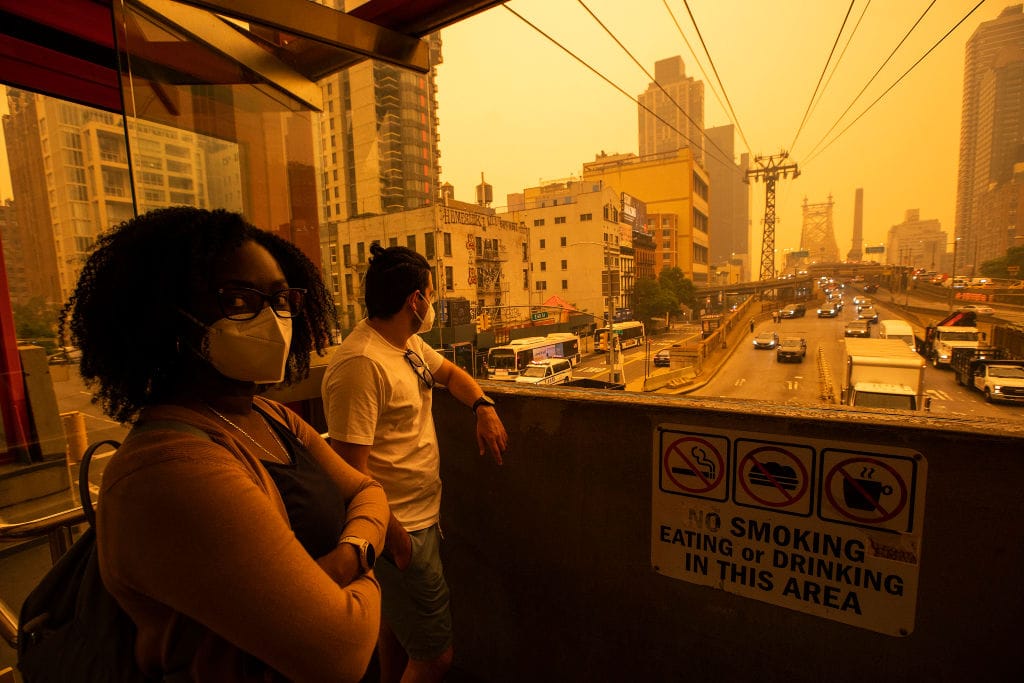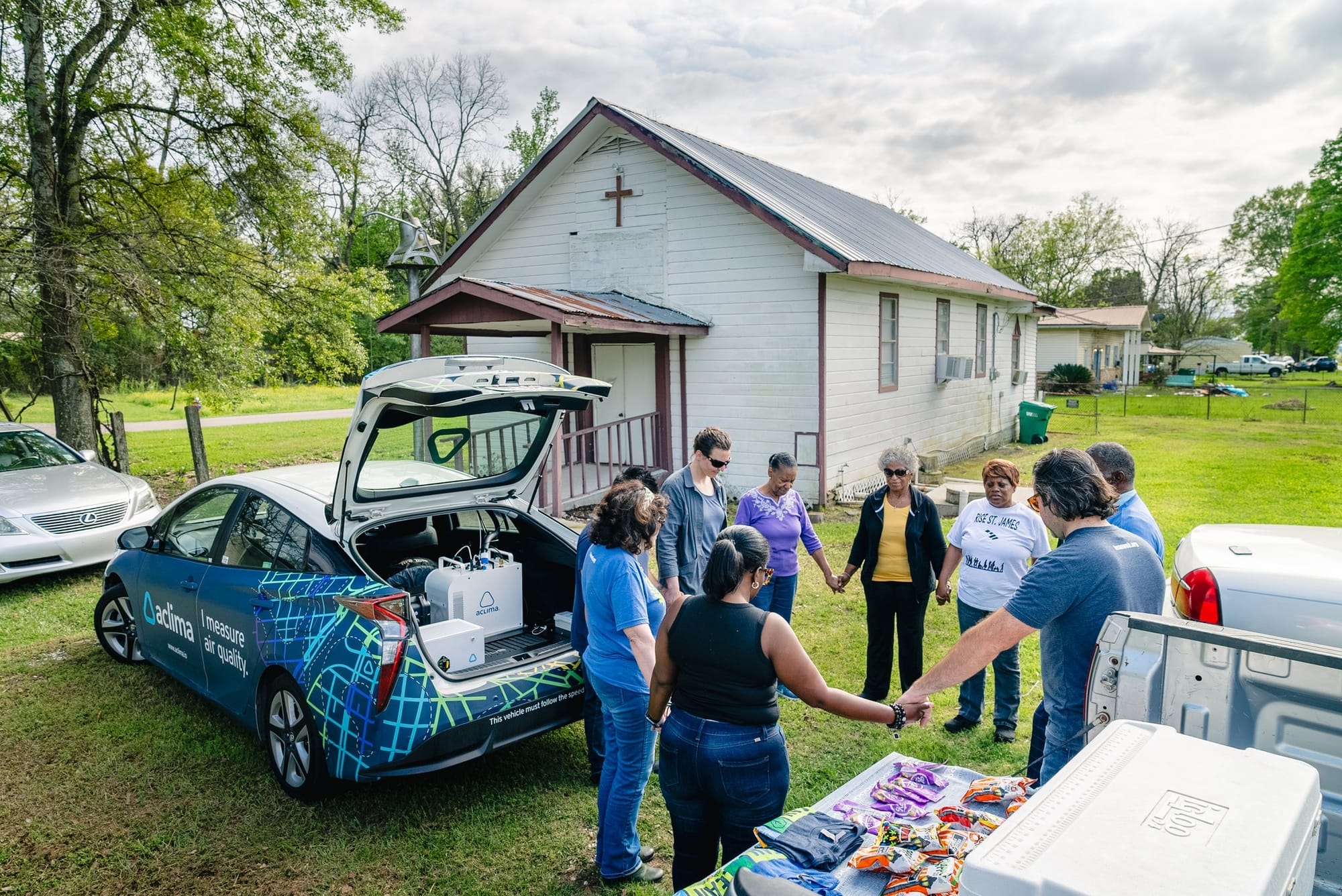Black neighborhoods at risk as EPA cuts key climate rule
Black communities brace for fallout after Trump revokes core safeguard that outlined pollution’s impact on nature and humans.

The story was originally published by Capital B, a nonprofit local and national news organization reporting for Black communities.
As nearly two-thirds of the U.S. population sweltered under extreme heat advisories on Tuesday, news echoed through Black neighborhoods already scorched by the effects of climate change: the Trump administration was moving to tear the heart out of America’s climate protections.
In a decision that environmental activists say is one of the most severe blows yet, Environmental Protection Agency leader Lee Zeldin declared the government will erase the scientific and legal backbone that empowers the EPA to take action against planet-warming pollution from tailpipes, smokestacks and industry.
The measure Zeldin plans to strike down, also known by environmentalists as the “endangerment finding,” pulls the last legal thread limiting pollution, exposing Black neighborhoods to even greater risks, with no federal shield left against the smoke, heat and storms. The scientific finding confirmed that greenhouse gasses endanger public health and welfare.
For Black communities like those in Cleveland, where nearly a third of Black residents live in poverty and are about 80% more vulnerable to fatal health risks from pollution, the move feels like another body blow. The scientific finding was created to protect human health, and it has been a lifeline for communities shouldering the country’s heaviest burdens of asthma, heat stress and polluted air.
Mayor Justin Bibb, Cleveland’s fourth Black leader, sounded the alarm, calling the move a historic reversal that threatens decades of progress and endangers those “already burdened by pollution, climate-related risks and the challenges faced by historically underserved populations.”
“Rolling back the Endangerment Finding would have profound consequences for our nation, undermining decades of progress in addressing climate change and public health protections,” he said in a statement to Capital B. But “in Cleveland, we remain committed to bold climate action, guided by science and driven by our vision for a healthier, more resilient future for all.”
With the repeal of the scientific finding, the EPA would no longer be legally bound to crack down on the pollution that magnifies those harms under the Clean Air Act. Advocates say this could leave Black families to bear the brunt of storms that grow fiercer, heat waves that turn deadly and air that is harder to breathe.
“Repealing it will be the largest deregulatory action in the history of America,” Zeldin said on the conservative podcast “Ruthless.” He also said that climate rules based on the scientific finding “cost Americans a lot of money.”
Legal and environmental advocates warn the move essentially denies decades of established climate science and could erase essential protections against the rising impacts of a warming planet.
This comes after the International Court of Justice ruled in July that all countries are legally obligated under international law to curb greenhouse gas emissions, rapidly phase out fossil fuels and protect the environment. The ruling affirmed that failure to do so can lead to legal responsibility — including reparations — to those harmed by climate change.
As the administration guts pollution limits and slows solar and wind development, advocates say this latest rollback escalates the heat on communities that are most at risk. For many Black Americans, it’s not just an abstract debate. Organizers say it is a stark reminder that their communities remain on the climate front lines.
Why repealing the ‘endangerment finding’ matters for Black communities
In the first six months of this year, the Trump administration carried out more than 400 attacks on science, according to a report released by the Union of Concerned Scientists.
With this latest rollback, critics warn, decades of incremental progress to protect over-polluted neighborhoods are at risk of unraveling. They say this unraveling could leave residents more exposed to dirty air, toxic water,and the devastating costs of climate change.
“If your house catches fire, you call the fire department. Our planet is burning. EPA’s response? Do nothing,” said Dominique Browning, the cofounder of Moms Clean Air Force, a nonprofit focused on protecting children from air pollution. “Zeldin is trying to roll back 15 years of progress towards cleaning up climate pollution — progress that Americans across the political spectrum strongly support.”
“There are people, who in the name of climate change, are willing to bankrupt the country,” said Zeldin about the costs related to lowering pollution through cleaner technology and power sources.

But, “Loving our children requires fighting for their world,” Browning said in response.
Research conducted by the EPA confirms that Black neighborhoods are systematically targeted for industrial sites, highway construction and hazardous waste dumping, a pattern recognized as environmental racism.
Under the Biden administration, federal environmental justice protections began to make a measurable difference. They enabled community organizations to partner with the EPA to monitor air quality, hold polluters accountable and secure resources for cleanup and resilience. Supporters say revoking the scientific finding pulls the rug out from under these efforts, stripping the federal government of the very authority to tackle the disproportionate pollution that shortens Black lives through cancer, asthma, heart and lung disease.
The Trump administration also announced plans to roll back auto emissions standards. Vehicle pollution is the largest single source of greenhouse gasses in the U.S., and Black Americans are more likely to live near highways or industrial corridors where air quality is often worse. As one former EPA official put it, eliminating tailpipe and industrial emissions regulations means Black communities are left to “suffocate,” amid higher exposures to soot and smog and increased risk from climate extremes like heat waves and floods.
Last year, under the Biden administration, the EPA made new rules to make car and truck pollution standards stricter. These new rules were expected to reduce 7.2 billion tons of climate pollution by 2055 and bring in $13 billion every year in health benefits by limiting trips to the hospital from respiratory illnesses. According to the EPA’s own research, the rule would’ve saved drivers about $6,000 over the lifetime of a new car built to meet the cleaner standards.
Further, climate change doesn’t hit all Americans equally. Black families are more likely to live in flood-prone or heat-vulnerable areas, and they often receive less disaster recovery support when disasters strike. As federal funding and oversight dwindle, experts argue these inequities will grow, compounding the risk of displacement, economic loss and declining public health.
Advocates said that sidelining environmental justice now will allow environmental racism to intensify. Without the EPA’s enforcement power, they said civil rights complaints could go unanswered, and communities already hit hardest could lose the tools needed for survival.
“The Trump administration’s intent is clear: They want to undermine or overturn the endangerment finding so as to evade EPA’s legal responsibility to address the harms caused by climate change,” said Rachel Cleetus, policy director with the Climate and Energy Program at the Union of Concerned Scientists.
Cleetus added: “This is simply a giveaway to the fossil fuel industry and an attempt to undo pollution standards to limit heat-trapping emissions from motor vehicles, from power plants, [and] from oil and gas operations.”
